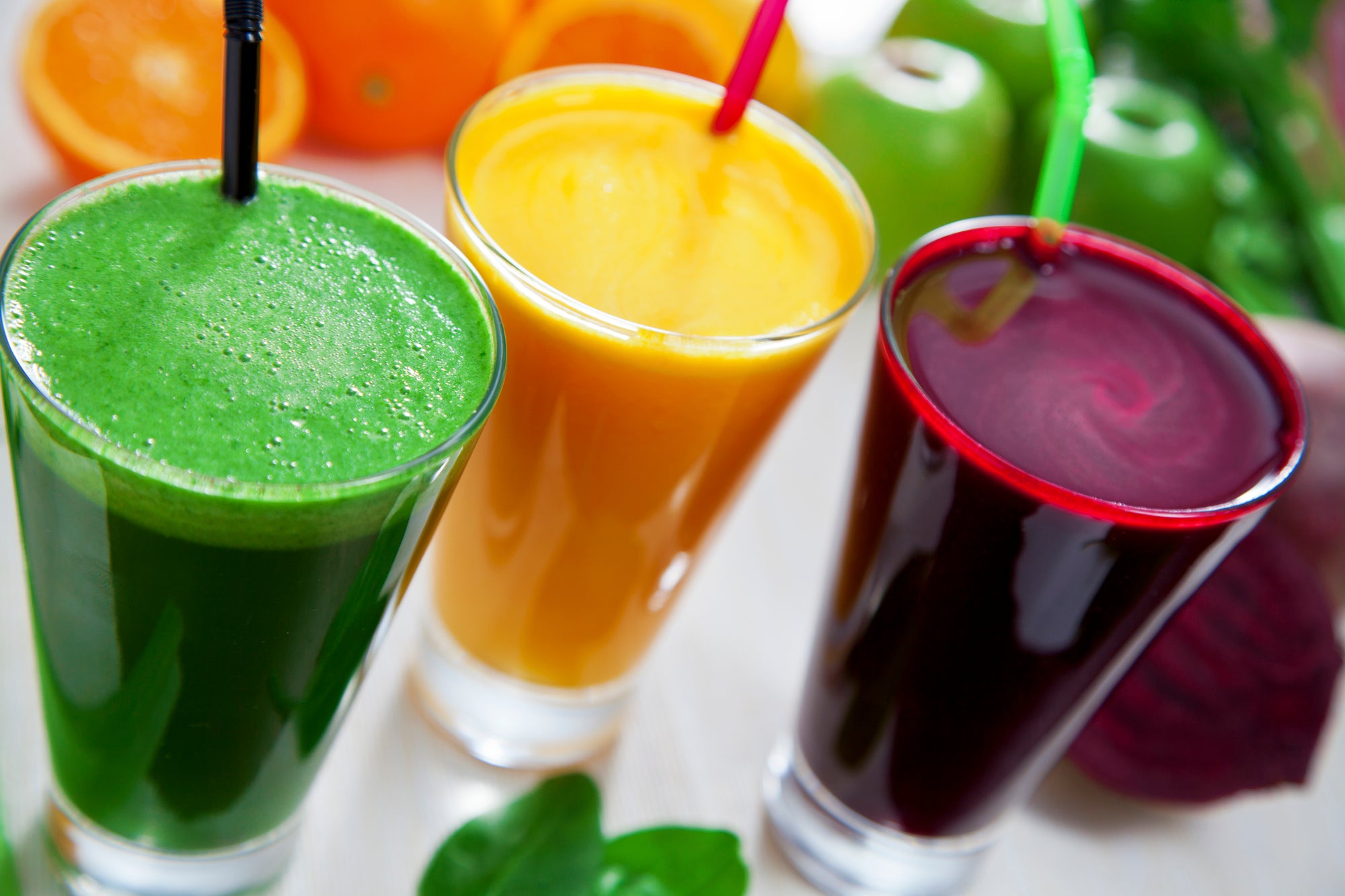THE BENEFITS OF JUICING
When people ask me if juicing is good for them? I ask them a few questions. For example, “do you want to have really good skin? Do you want to get great sleep? Do you want to improve your overall energy levels? Do you want to get rid of brain fog, feeling of sluggishness and have overall better vitality?” If they answer YES to any of these questions, I tell them juicing is definitely for you.
WHY CAN’T I JUST EAT THE FOODS INSTEAD OF JUICING THEM?
The second biggest question I get regarding juicing is why can’t you just eat the fruits and vegetables? Why do they have to be juiced? The simple answer is: yes you can. However, most people don’t get enough fruits and vegetables into their diet by simply eating them. You’d have to consume a mountain of them to obtain the ideal nutrient level, and most people find it hard to eat this much food. The rainbow of colors that come from these foods has a huge array of vitamins and minerals, each having its own unique benefits. The goal is to add these in a more concentrated micronutrient form into your diet by juicing them.
IS JUICING HIGH IN SUGAR?
I find people have fears about the sugar content of juicing. When it comes to juicing, I recommend people get 80 percent of their juice from vegetables, and 20 percent from fruit. Another way to think about it is for every three vegetables, juice one fruit. Remember, you can never go too heavy on the vegetables. Most people prefer to add fruit to their juice for a sweeter flavor. If you can tolerate a less sweet taste, go for it! You’ll probably find that your taste preferences change over time, and soon you’ll be juicing mostly veggies. Just don’t make the mistake of juicing only fruits. I’ve seen some people juice with ONLY apples, pineapple, and pear. Yes, that’s going to taste great, but it will spike your blood sugar.
Juicing compresses an enormous volume of solid vegetables and fruits into a highly nutrient-dense beverage. You are therefore supercharging your micronutrient intake which is critical for excellent health and having that extra zest in your life.

HOW LONG CAN YOU STORE FRESH JUICE?
The work and clean up that comes with juicing can be a daunting at first. However, it is important to know you can store your juice for up to three days. Batching your juicing into one big session can help you avoid multiple kitchen clean ups. Just make sure to use a clean mason jar and fill the juice as high as you can inside of it. This helps keep air out, which helps to preserve the juice. Then seal the jar tightly and store it in the fridge for later. By doing this, you preserve the nutrient content of the juice so it is as fresh as possible. This type of storage routine is really helpful because it feels like a less time-consuming process. When you prepare and plan, you set yourself up to succeed. You can make three days worth of juice and only have to clean once. This way you only have to juice twice a week and yet your body gets loads of the added micronutrients it craves and desires.
QUICK TIPS FOR JUICING:
-
Have your mason jars out and ready for storage.
-
Put all your fruits and vegetables in one place. Have them cut up and ready to go.
-
As a general rule, stick to 80% vegetables and 20% fruits.
-
Have fun with it. Make 2-4 different recipes for storing. This way the taste will stay exciting and interesting.
-
Fill mason jars as full as possible to prevent air from spoiling your juice. Seal jars and store in the refrigerator for up to 72 hours.
If that isn’t convenient, I don’t know what is! Turn on some music and have a bit of fun with it. Like with anything new you try, do a little research. Look up recipes. Get into it! Don’t be afraid to try one juice per day. I promise after a week, a month, a year, you will feel the difference in your health.








